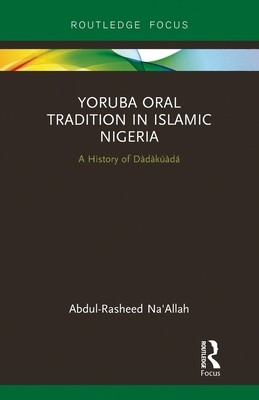
- We will send in 10–14 business days.
- Author: Abdul-Rasheed Na'Allah
- Publisher: Routledge
- ISBN-10: 0367787954
- ISBN-13: 9780367787950
- Format: 14 x 21.6 x 0.9 cm, softcover
- Language: English
- SAVE -10% with code: EXTRA
Reviews
Description
This book traces Dà dà kúà dá's history and artistic vision and discusses its vibrancy as the most popular traditional Yoruba oral art form in Islamic Africa.
Foregrounding the role of Dà dà kúà dá in Ilorin, and of Ilorin in Dà dà kúà dá the book covers the history, cultural identity, performance techniques, language, social life and relationship with Islam of the oral genre. The author examines Dà dà kúà dá's relationship with Islam and discusses how the Dà dà kúà dá singers, through their songs and performances, are able to accommodate Islam in ways that have ensured their continued survival as a traditional African genre in a predominantly Muslim community.
This book will be of interest to scholars of traditional African culture, African art history, performance studies and Islam in Africa.
EXTRA 10 % discount with code: EXTRA
The promotion ends in 19d.18:46:03
The discount code is valid when purchasing from 10 €. Discounts do not stack.
- Author: Abdul-Rasheed Na'Allah
- Publisher: Routledge
- ISBN-10: 0367787954
- ISBN-13: 9780367787950
- Format: 14 x 21.6 x 0.9 cm, softcover
- Language: English English
This book traces Dà dà kúà dá's history and artistic vision and discusses its vibrancy as the most popular traditional Yoruba oral art form in Islamic Africa.
Foregrounding the role of Dà dà kúà dá in Ilorin, and of Ilorin in Dà dà kúà dá the book covers the history, cultural identity, performance techniques, language, social life and relationship with Islam of the oral genre. The author examines Dà dà kúà dá's relationship with Islam and discusses how the Dà dà kúà dá singers, through their songs and performances, are able to accommodate Islam in ways that have ensured their continued survival as a traditional African genre in a predominantly Muslim community.
This book will be of interest to scholars of traditional African culture, African art history, performance studies and Islam in Africa.


Reviews